Image Weavers: In Honor of the Spirit of Toni Cade Bambara
By Guest Contributor on November 24, 2014By NaOme Richardson
Toni Cade Bambara (TCB) touched the lives of many. Among the many are members of ImageWeavers, the Philadelphia Black and Brown Women’s Media Arts Collective
Image Weavers formed in 1994 as a media arts collective with a dual mission.
- Make visible that which has been invisible for too long, the lives and creative works of women of color;
- Support the artistic development of women media artists through workshops, screenings, and independent productions.”
This mission resonated deeply with Toni Cade Bambara’s (TCB) personality and life affirming purpose. Consequently, TCB opened the door to learning how to express oneself through words and images for several women who were members of Image Weavers. She created a sacred space for those women who needed an avenue to hone their creative writing skills and to develop their artistic voice by offering them valuable feedback. Through taking TCB’s scriptwriting workshops at Scribe Video Center in the 1990’s, their entrance into her world of expressing through images and words, encouragement and sharing was duly rewarded.
We remember TCB through the lengthy personal letters with detailed commentary that she wrote in response to our scripts, short stories and poems. This profound laborious act of generosity with her time and expertise is embedded in our hearts and our spoken memories nineteen years after she became a cherished ancestor.
Barely two weeks after Image Weavers’ first public exhibition of works on January 27, 1995, TCB lovingly embraced and anointed Image Weavers in success by becoming our “pro bono agent/promoter.”
“February 10, 1995
My dear Sistus, Thank you so very much for allowing me to screen some work last week at the Smithsonian’s “100 Years of Black Film” conference. Nadine Patterson masterfully assembled clips from 5 projects (SILENCE, SHIZUE, IDA LEE, SANGRE DE TORO, and MAMA’S GIRL) as I requested from both the makers and from Nadine (Patterson). My purpose was and still is to persuade a major institution to establish an archive called “First Works” and to purchase and house contemporary works from practitioners such as yourselves…
Although shown under horrendous conditions—trickle-in audience defying the snowstorm and stomping their books and making noise, plus lack of understanding between me and the projectionist as to what tape was to be shown when (I was to lecture as clips from Scribe’s “Community Visions” screened silently behind me, then shut up while ImageWeavers’ stuff played with sound, then do hard sell to the African American Dept. of the Smithsonian’s National Museum of American History and others who see the wisdom of establishing an archives of contemporary works)—the tape nonetheless captured the attention of filmmakers success as Camille Billops (THE KKK BOUTIQUE AIN’T JUST FOR REDNECKS) and critics such as Ed Guerrero (FRAMING BLACKNESS: THE AFRICAN AMERICAN IMAGE IN FILM) and Manthia Diawaria (BLACK CINEMA; AFRICAN CINEMA) as well as exhibitors such as Carl Erickson (who is currently doing in Roxbury what I hope we will duplicate all over the country, namely, reviving old movie houses and showing Black independent products), not to mention the conference coordinator, a bright young sister by the name of Rhea Combs and the sister in charge of the division Niani Kilkenny. Panelists throughout the day made reference to ImageWeavers as an idea (a young Black collective) and as subject matter, remarking on the variety of genre and modality and expressing an interest in seeing the works in entirety. Several conferees—such as cultural critic Greg Tate of The Village Voice, and Leasa Farra-Frazer, editor of Black Film Review—who’d not been in attendance during the screening, nonetheless inquired about “them Philly sisters we keep hearing about.”
So with your permission, I would like to approach the Afro Museum here and elsewhere and carry the tape around acting as an IW pro bono agent/promoter. And perhaps we can add to the tape as projects reach completion. I am thinking most particularly of Poindexter’s YO MAMA. Meanwhile, as soon as you folks come up with a logo I’d like to have generic biz cards made for you as my contribution (people drove me crazy asking for the address)—I gave a c/o Scribe response… I cannot say enough how very honored I am to know you and to watch you make history as both individual practitioners as an exemplary model of collective.
Respectfully & Affectionately,
Toni”[1]
As a result, those ImageWeavers who were personally touched by TCB share a common memory – the granting of permission to be and to do. They in turn embraced forging ahead to boldly produce the works that she helped mold with her suggestions and questions including but not limited to: Nikki Harmon, C. Tina Morton (Severed Souls), Nadine Patterson (Moving With The Dreaming), Sarah C. Poindexter, and Aishah Shahidah Simmons (NO! The Rape Documentary).
Then there were those Image Weavers who met Toni Cade Bambara through her writings, including her first novel The Salt Eaters, her ground breaking and timeless anthology, The Black Woman, her short story collections (Gorilla, My Love and The Sea Bids Are Still Alive), numerous articles, and several films (in partnership with Louis Massiah, Pearl Bowser, John Akomfrah, Nadine Patterson and others) that were bequeathed to the African Diaspora and beyond.
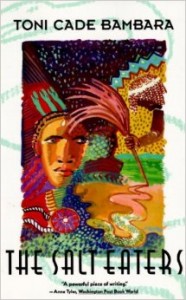 My personal memory of TCB’s is as one standing back looking on not yet brave enough to step forward. However, her initial presence occurred long before I met her personally. She came into my life through my reading of The Salt Eaters, a novel whose title lingers on in my memory of her for a couple of reasons:
My personal memory of TCB’s is as one standing back looking on not yet brave enough to step forward. However, her initial presence occurred long before I met her personally. She came into my life through my reading of The Salt Eaters, a novel whose title lingers on in my memory of her for a couple of reasons:
- the boldness of her language since I was never allowed to say, “damn” with any approval from my mother while growing up much less curse out right; and
- her daring to record the thoughts and actions of life among African Americans, along with the hurts of realizing life sugar was not truly sweet.
Perhaps TCB’s supportive spirit visited with some members of Image Weavers this summer. The idea that Image Weavers members should return from their almost two decade hiatus occurred almost exactly twenty years after our very first meeting this past July 2014 during the Third Annual Black Star Film Festival. An annual film festival brilliantly and masterfully organized by Maori Karmael Holmes.
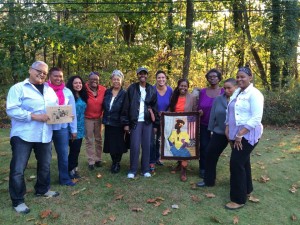
ImageWeavers’ Twentieth Anniversary Reunion,
October 25, 2014
L-R Mee Lin Yuk, Roxana Walker Canton, Anula Shetty, Tina Morton, Stephanie Yarbrough, Miyoshi Smith, Nikki Harmon, Asake Denise Jones, Yvonne Marie Jones, Aishah Shahidah Simmons, NaOme Richardson
Photograph: ©Roxana Walker-Canton
After discussing the feasibility of bringing the members together, the work began. Invitations were sent and it happened. The Reunion took place at Nikki Harmon’s home on October 25, 2014. The following Image Weavers attended: Nikki Harmon, Asake Denise Jones,Yvonne Jones, Tina Morton, NaOme Richardson, Stephanie Yarborough, Anula Shetty, Miyoshi Smith, Aishah Shahidah Simmons, Roxana Walker-Canton, and Mee Lin Youk,. In the spirit of TCB, we had great food; we shared our current projects; and we talked
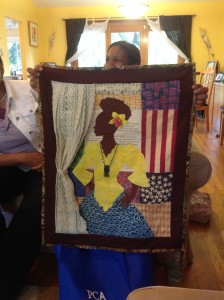
ImageWeaver Asake Denise Jones’ quilt. “FREE & Choose to Remain So” ©2011
(in honor of Oney Judje)
photograph: ©Aishah Shahidah Simmons
about our creative visions and creating a webpage to encourage, motivate and share thoughts and works.
We pay homage to Sister Toni Cade Bambara for being a doorkeeper who ushered us through when we were searching for the door to our own creative journeys.
ImageWeavers roll call: Zakiyah Ali, Denise Brown, Halima Brown, Charlene Gilbert, Meryl Hamilton, Nikki Harmon, Charlene Horne, Denise James, Sherri Denise James, Denise C. Jones, Yvonne Marie Jones, Barbara Kigozi, Evelyne Laurent-Perrault, Valerie Linson, Gail Lloyd, Alicia Mason, Taniyiki Marie, Carole Metellus, Wanda R. Moore, Crystal Morales, C. Tina Morton, Lisa Nelson Haynes, Portia Thuli Nxumalo, Ryva, Nadine Patterson, Sarah C. Poindexter, Charita Powell, NaOme Richardson, Anula Shetty, Aishah Shahidah Simmons, (the late)Barbara Smith [2], Debra Smith, Karen Smith, Miyoshi Smith, Nadine Stanley, Carmella Vassor, Roxana Walker-Canton, Gwen Watson, Tamara Xavier, Stephanie Yarbrough, Mee Lin Yuk.
[1] Simmons, Aishah Shahidah, “Asserting my In(ter)dependence: The Evolution of NO!” in Savoring the Salt: The Legacy of Toni Cade Bambara, editors Linda Janet Holmes and Cheryl A. Wall.(Temple University Press 2008, excerpt Chapter 27).
[2]This was not the living Black feminist lesbian scholar, author, activist Barbara Smith (cofounder Kitchen Table Press)
NaOme Richardson, Ph.D., is an educator, investigator, filmmaker, and poet. She is an adjunct professor at Cheney University and Eastern University. She received her Ph.D. in Africana Studies from Temple University and has taught Africana studies, English, Sociology, Writing and Western Thought at Temple University, Cheney University, and Eastern University. She has worked as a Humanities Facilitator and videographer on various community projects with Scribe Video Center and Independent Filmmakers. Most recently she took time to pen two volumes of poetry Reflections: Paddled to the Sea (2013) and Kinships and Weapons of Tactics (2014).
Most recently her book chapter “Rosalind Jones Johnson Community Advocate: On Activism and the Teacher as Activist” will be included in Women of African Descent and Justice in World Societies, a forthcoming publication in November, 2014. She was the Humanities Facilitator for two documentaries under the Muslim Voices of Philadelphia, which is a project of Scribe Video Center. Both documentaries, “Masjid Freehaven: The Struggle, the Sacrifice and the Gift (18:44 minutes, 2014) and “The Moorish Science Temple of America: Branches to Philadelphia, Rooted in Peace” (15:45 minutes, 2014) premiered on Tuesday June 24, 2014 at the International House of Philadelphia. These films have screened at community libraries, museums and community centers throughout Philadelphia from September 2014 – November, 2014 and at the Schomburg Center for Research and Black Culture in New York.
You may also like...
All Content ©2016 The Feminist Wire All Rights Reserved

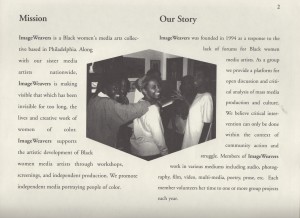
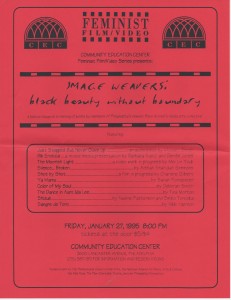
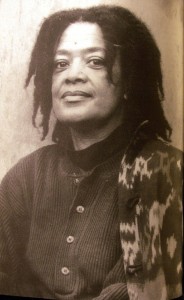

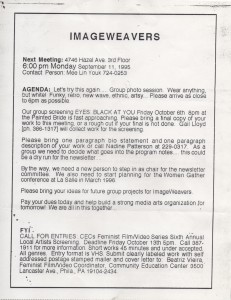
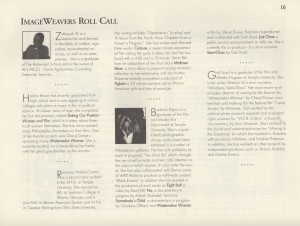
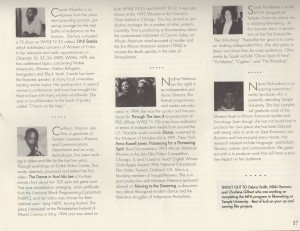
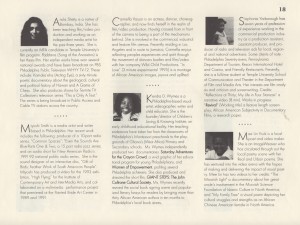
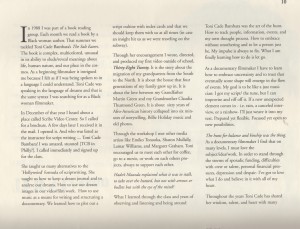
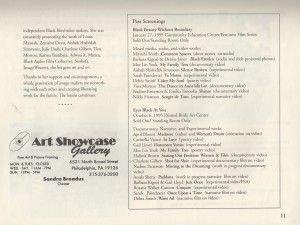
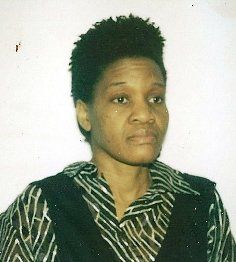
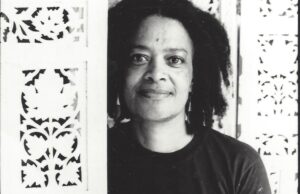
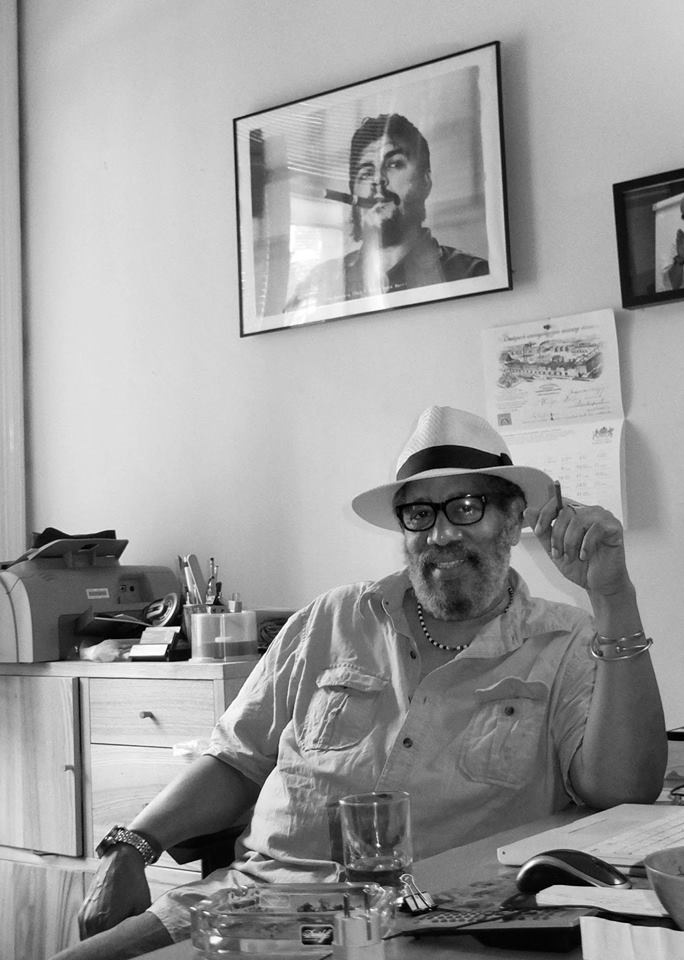
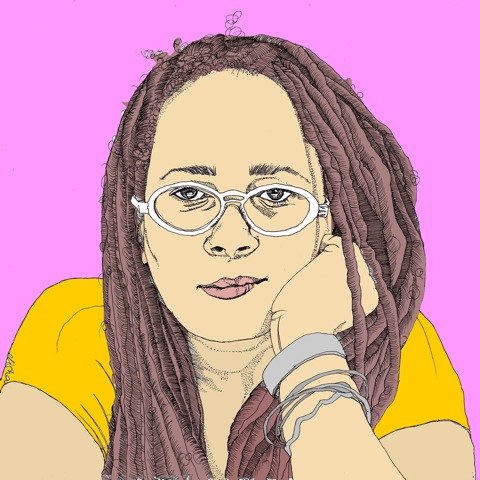
0 comments